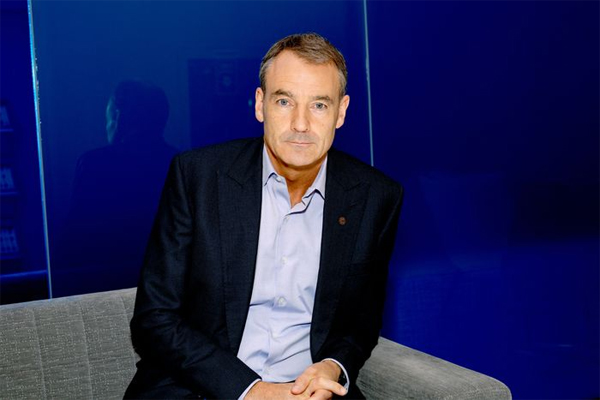
Avi Salzman, Barron’s
LONDON
EnergiesNet.com 02 09 2023
One day after showing fresh support for oil drilling, BP CEO Bernard Looney rejected criticisms that the company is retreating from its environmental commitments.
“The facts don’t support the statement that we’re backing away” from the energy transition, Looney said in an interview with Barron’s. “The facts support that what we did yesterday was we leaned in.”
BP (ticker: BP) said on Tuesday that it will wind down its oil and gas operations more slowly than previously expected, decreasing oil production by 25% by 2030 instead of the 40% reduction it had forecast earlier. BP will spend about $1 billion a year more than it had previously expected on fossil fuel production through 2030, which is likely to amount to an increase of 10% or more. The company’s increased commitment to drilling comes as it also plans to invest an additional $1 billion a year in “transition growth” businesses like biofuels and electric-vehicle chargers.
Looney was in New York to meet with investors, who so far appear to be cheering the changes. The stock was up 8.4% on Tuesday and another 2.9% on Wednesday afternoon. Since he was appointed in 2020, the stock has trailed some peers; analysts say BP has struggled because investors haven’t bought into its green transition and believe clean energy will offer low returns.
After BP’s announcement, some climate-conscious investors said that the oil giant is becoming less committed to its green goals.
“Apparently, BP sees the windfall profits in oil and gas not as an opportunity to massively increase investments in renewables, but as an encouragement to increase investments in fossil fuels,” said Mark van Baal, founder of activist shareholder group Follow This.
But Looney thinks critics are mischaracterizing the company’s goals. He pointed to BP’s progress so far in funding clean-energy businesses, including investments last year of $5.5 billion into areas outside of oil and gas production and refining, or a little over 30% of the company’s capital budget. That included a $3.3 billion purchase of biogas producer Archaea Energy.
The year before Looney took over as CEO, the company invested just 3% of its capital budget into cleaner areas, he said. “Show me any company in the world in our sector who has gone from 3% to 30%,” he said. “That number will be 40% in two years and it will be 50% in 2030.”
BP has stuck to its commitments to cut the emissions it produces from its operations by 50% by 2030, but reduced its expectations for so-called Scope 3 emissions, which come from the use of its products. It now expects to lower Scope 3 emissions by 20% to 30% by 2030, down from previous expectations of 35% to 40%. That forecast in particular irked environmental groups, given that the emissions from using oil in engines and industry make a bigger impact on the climate than the emissions produced from drilling for it. Looney says that critics aren’t acknowledging “so many of the other metrics have been accelerated and advanced, and we’re spending more money.”
Looney also said that the company’s strategy is in line with what governments around the world have been asking for, particularly since Russia invaded Ukraine. President Biden made an unscripted statement in his State of the Union speech on Tuesday that “we’re going to need oil for at least another decade,” before adding “and beyond that.”
“Here in the United States, the administration is saying, ‘We want you to drill more,’” Looney said. “We’re going to drill more. We’re adding to rigs in the Gulf of Mexico. We’re going to add 100,000 barrels a day of production in the Permian Basin between now and 2025. We’re going to double production in our onshore business between now and 2030.”
“Our strategy squarely fits with giving the world what it wants and needs, which is: Please help me with energy security and affordability today, and please don’t discount the energy transition. We need to accelerate it,” he said.
Write to Avi Salzman at avi.salzman@barrons.com
marketwatch.com 02 08 2023












